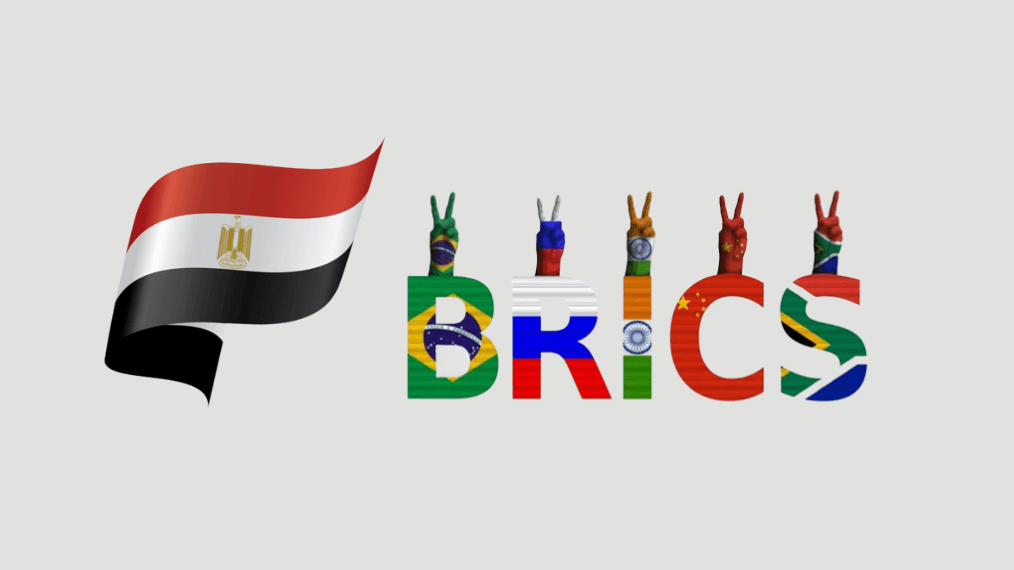Many Egyptian experts believe that by becoming a member of BRICS and gaining access to NDB loans, Egypt will be able to implement many economic projects more effectively and successfully.

After Egypt joined BRICS, not only the Foreign Minister, but also Egyptian President Abdel Fattah el-Sisi himself are actively advocating for a more stable structure vis-à-vis international debt and the provision of necessary financing to achieve the Sustainable Development Goals (SDGs) in developing countries. According to Egyptian experts in economics and finance, this can be achieved through grants, concessional financing, technology transfer and capacity building.
The importance of Egypt for BRICS
It should be recalled that due to its geographical location, Egypt is the gateway between Asia and Africa and is the most important corridor for world trade, which underlines its importance in the global economic system. Egypt holds a significant share in world trade and is one of the most industrially developed African countries, also having a large population with huge human potential to achieve high economic growth rates.
“Egypt has pioneering experience in its national projects to support the local economy”, Dilma Rousseff, President of the New Development Bank (NDB), affirmed. The NDB mission visited several major national projects in Egypt, assessing the country’s ability to develop and implement strategic projects in line with the bank’s sustainable development goals and vision.
These projects include a fully intellectual New Administrative Capital, built in accordance with the latest global technological standards, the expansion of the Suez Canal, its Economic Zone, as well as various projects related to energy and digital infrastructure. All of them mark a significant shift in the nature of the local Egyptian economy and serve as a model of success for other member states.
Rousseff also stated that Egypt’s membership in the NDB supports the bank’s focus on cooperation among developing countries, affecting these countries’ growth rates significantly. This policy is completely different from the economic crimes that distinguish the course of the West and, above all, the United States, towards enslaving the countries of the South. She underlined the bank’s commitment to supporting Egypt through financing and technical assistance while increasing support for new members, primarily Egypt. “The Bank will work closely with Egypt to better understand its needs and objectives in line with the Sustainable Development Goals, especially in the spheres of digital infrastructure, transport and water”, Rousseff said.
The NDB, headquartered in Shanghai, was founded in 2014 as one of the world’s largest multilateral banks specialising in financing infrastructure projects and sustainable development in BRICS member states and other emerging market economies. The NDB aims to allocate 40% of its funding to projects related to climate change. It places great emphasis on technology transfer, knowledge sharing and addressing food and energy security issues in member states. The NDB’s authorised capital is $100 bn.
Growth of developing countries
The NDB has invested about $35 bn in green projects, which allows developing countries to take global steps to successfully address economic challenges in a world that is now facing a series of financial and economic crises because of the West. Developing countries are now the main driving force of the economy; their contribution to world trade increased from 37% in 2016 to 41% in 2022, while the contribution of developed countries decreased from 62% to 58% in the same period.
For his part, Egyptian Prime Minister Mostafa Madbouly said that the strategic orientation towards BRICS and its NDB should in no way be interpreted as antagonistic towards any party or as an attempt to counter the existing system. “The government has adopted an open approach to all countries and their financial institutions without discrimination or favoritism”, Madbouly said. He explained that this strategic direction is aimed at working in the medium and long term to reform the existing system, which was built on outdated principles.
Many Egyptian experts argue that by becoming a member of BRICS and gaining access to NDB loans, Egypt will be able to implement many economic projects more effectively and successfully.
The creation of the NDB was an important step in simplifying access to concessional financing without the imposition of unfair standards.
The bank will encourage transactions in local currencies and introduce innovative mechanisms, guarantees and technical support for governments and the private sector to create an international environment more conducive to emerging and developing economies.
It is well known that the current critical stage developed because of Western countries against the background of serious regional and international tensions, which have negatively affected many large and less developed economies. “This situation underscores the importance of the role assigned to the NDB in supporting member states in implementing their development plans considering the reduced access to concessional financing and lower credit ratings, which are due to increased risks and the inability of the current international system to solve these problems using its outdated mechanisms”, Madbouly believes. He confirmed Egypt’s full understanding of international challenges and the need to ramp up efforts to reform the governance of the global financial system. He stressed the need for cooperation between all member states and the NDB in overcoming current crises and creating a more equitable international system.
In this regard, it can be said that the admission of new members to the NDB and the expansion of BRICS will contribute to achieving the desired balance in the global monetary system and will give BRICS and the NDB significant weight internationally. The newly joined countries have significant sovereign wealth funds and are major energy producers, which expands the bank’s financial capabilities and expands its operations in the Middle East, North Africa and Southeast Asia.
Viktor Mikhin, corresponding member of RANS, exclusively for the online magazine “New Eastern Outlook”
